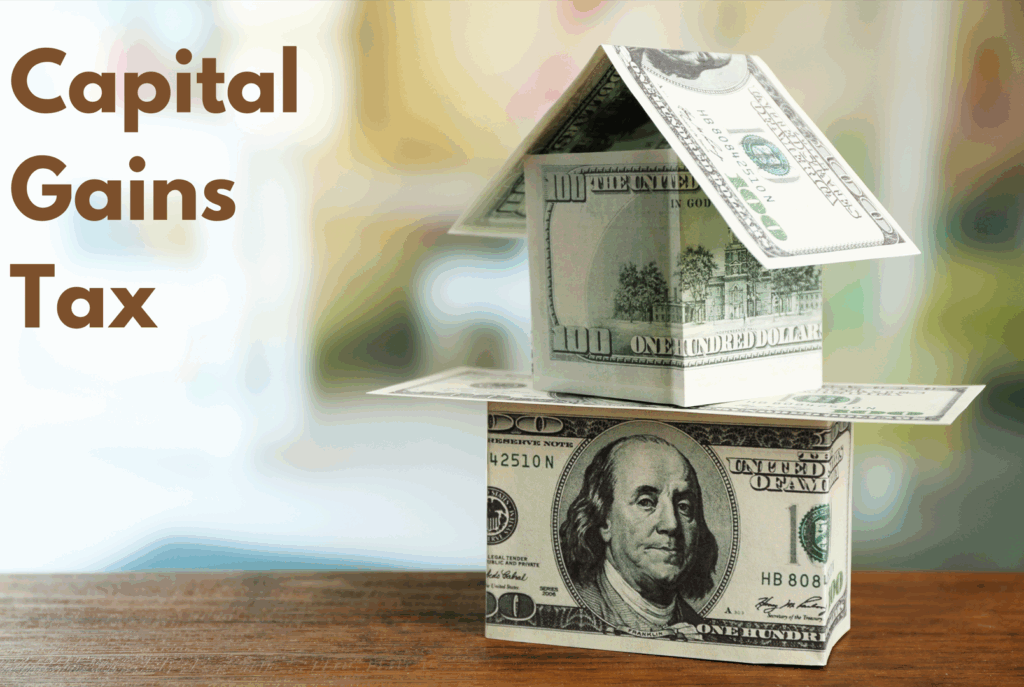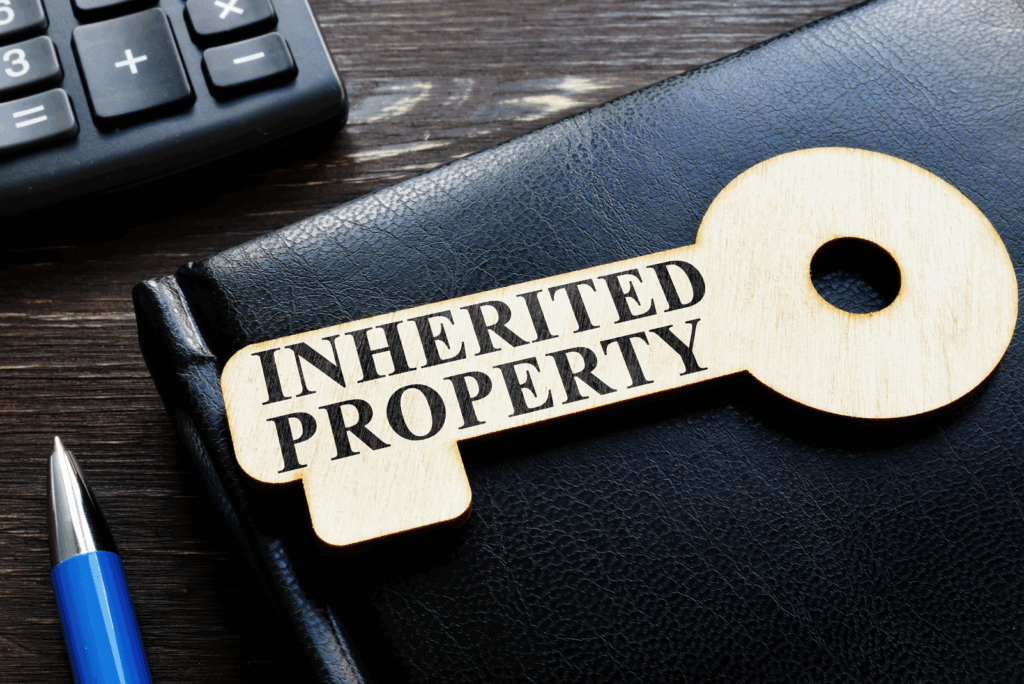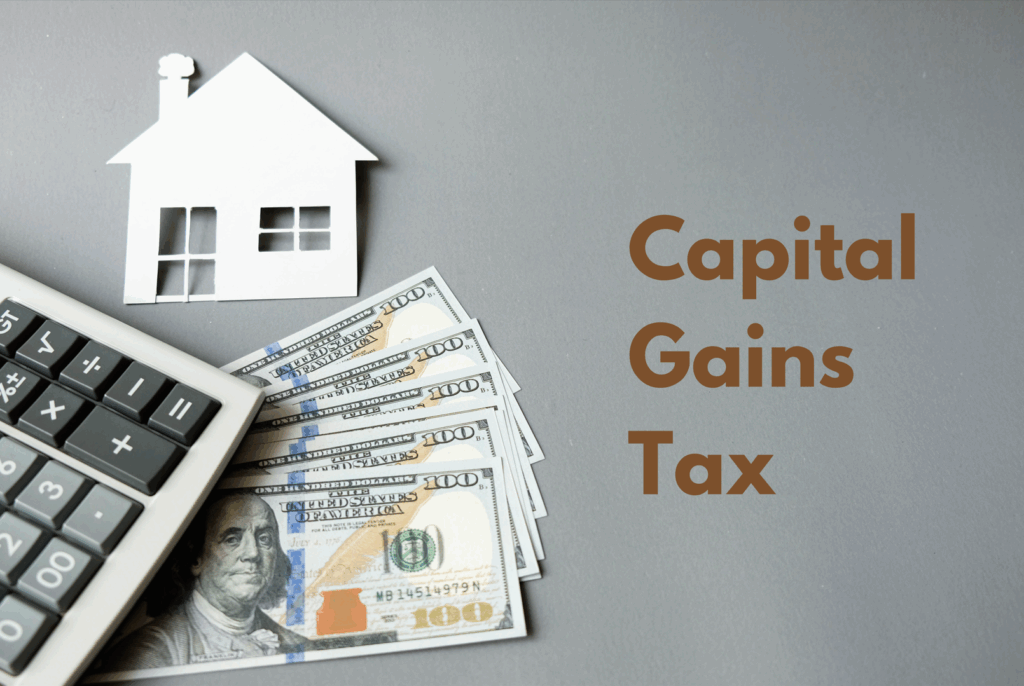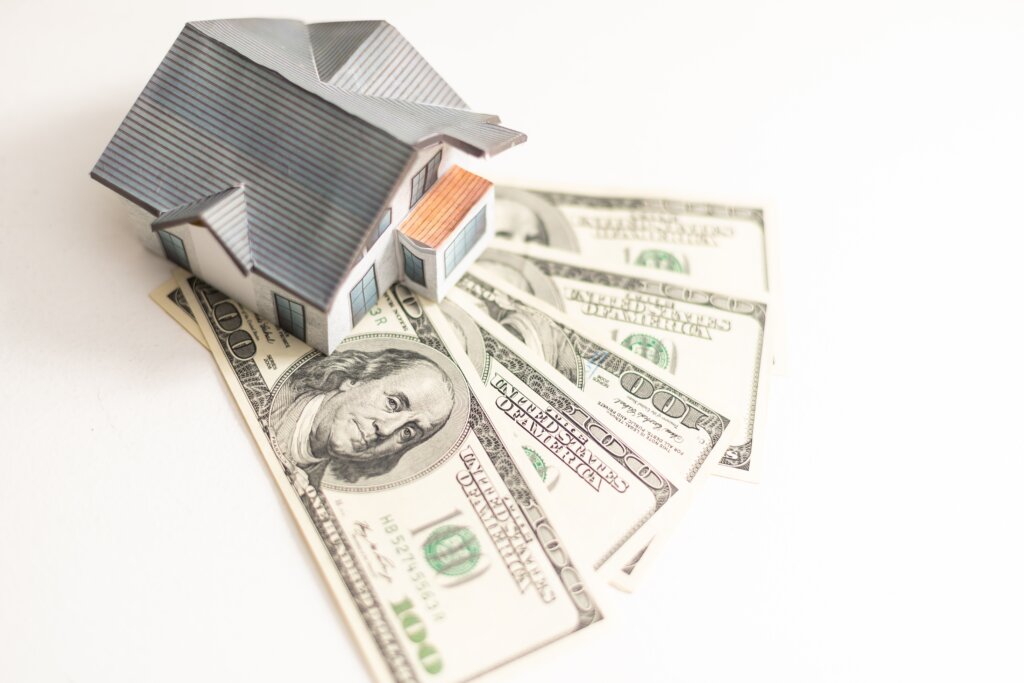
Selling your Louisville house should feel exciting, not like you’re about to get mugged by the tax man. But that’s the reality. You’ll pay taxes, which might be higher than you think.
The answer to “who pays taxes when selling a house in Louisville, KY” is simple… You do. As the seller, you’re responsible for most of the tax bill.
But don’t start stress-eating yet, because there are ways to keep more money in your bank account. Read this whole guide to learn more!
Do Sellers Pay Taxes When Selling a House in Louisville, KY?
Yep, you’re paying taxes. That’s the reality of selling real estate in Louisville. Depending on your profit, you’ll face property taxes, transfer taxes, and possibly capital gains taxes.

You’re not flying blind, though. Kentucky has clear rules about who pays what. Plus, many sellers qualify for tax breaks they don’t know about.
You should learn about your tax obligations before listing your house, which means fewer surprises at closing.
Most sellers pay between 1% to 3% of their home’s sale price in various taxes. That might sound scary, but it’s reasonable compared to other closing costs.
Can Sellers Be Exempt from Certain Taxes?
Some sellers catch tax breaks, mainly if you lived in your house as your primary residence. The rules are quite generous if you qualify.
You can also dodge certain transfer taxes in specific situations, like divorce or inheritance transfers.
Kentucky wants to encourage home ownership, so it’s built in several exemptions that regular homeowners can use.
What Taxes Do Sellers Pay When Selling a House in Louisville, KY?
There are four main types of taxes that might be due when you sell your Louisville home. Each one works differently and is paid at different times.
Property Taxes on Your Home Sale
Property taxes are paid yearly to Jefferson County for owning your house. They fund schools, roads, and local services. When you sell, you owe these taxes until closing day, and the buyer takes over.
The taxes get split proportionally based on how long each person owned the house during the tax year.
The buyer covers the rest if you sell in July and pay January through July. Jefferson County’s current rate is about $0.14 per $100 of assessed value.
Kentucky Real Estate Transfer Tax
Transfer tax is Kentucky’s fee for officially moving your property deed from your name to the buyer’s name. It’s like a processing fee for changing ownership records at the courthouse.
Kentucky charges exactly $0.50 for every $500 of your home’s sale price. If you sell for $300,000, you’ll pay $300 in transfer tax. It’s automatically deducted from your proceeds at closing, and there’s no way around it.
Capital Gains Tax Requirements

Capital gains tax is what you pay on the profit you made from selling your house. If you bought for $200,000 and sold for $350,000, your capital gain is $150,000. The government wants a cut of that profit.
The federal rate depends on your income: 0%, 15%, or 20%. Kentucky tacks on another 5%. However, most homeowners dodge this tax completely thanks to the primary residence exemption.
You can exclude up to $250,000 in profit if you lived there for two years.
Estate Tax for High-Value Properties
Estate tax applies only when someone inherits property from a deceased person and only if the total estate is worth millions. It’s the government’s way of taxing wealth transfers between generations.
The federal estate tax begins at $13.61 million, while Kentucky’s threshold is much lower, at $1 million.
Most Louisville home sales never trigger estate taxes unless you deal with luxury properties or massive inherited portfolios.
How Much Are Property Taxes When Selling Your Home?
In Louisville, you don’t just pay a lump sum of property taxes and walk away. Everything gets divided up based on when you sell.
Prorated Property Tax Calculations
You pay property taxes for the days you owned your Louisville house, and the buyer picks up the rest. Yes, much like splitting a restaurant bill based on what each person ate.
Let’s say you sell on June 15th. You’re on the hook for January 1st through June 15th. Meanwhile, your buyer covers June 16th through December 31st.
The title company handles all this number crunching, so you don’t have to stress about counting days on a calendar.
Jefferson County Tax Rates and Assessment Values

Louisville property owners pay about $0.14 per $100 assessed value for city taxes. But wait, there’s more! You’ve also got county, state, and school taxes piled on top. That means your total rate is around $0.85 per $100.
Your house gets assessed at about its worth. Jefferson County ensures that you are taxed accordingly, with no lowball assessments.
If you own a $250,000 house in Louisville, you’re looking at roughly $2,125 per year in property taxes. When you sell, you’ll pay whatever chunk matches the time you owned it.
Who Pays Delinquent Property Taxes at Closing?
If you’re behind on property taxes, you need to fix that before closing. When back taxes are involved, who pays taxes when selling a house in Louisville, KY, becomes super clear. It’s always the seller.
The title company will research any unpaid taxes. If they find any, the money will come straight out of your closing proceeds.
You can’t hand over the keys until every penny of back taxes is paid.
Jefferson County doesn’t want late property taxes either. They pile on penalties and interest that make your debt grow. After April 15th, your unpaid taxes get shipped to the county clerk’s office, where even more fees start stacking up.
That’s why staying current on Louisville property taxes matters, even when planning to sell.
Kentucky Transfer Tax: How Much Do You Pay?
Kentucky’s transfer tax is quite simple compared to other states. You’ll pay exactly $0.50 for every $500 of your Louisville home’s sale price.
If you sell your house for $300,000, you’ll pay $300 in transfer tax. This is not exactly pocket change, but it’s not catastrophic either.
This tax gets deducted from your closing proceeds automatically. You can’t negotiate it away or convince the buyer to split it with you. Kentucky wants its cut, and they always get it. But at least you know exactly what you’ll pay ahead of time.
Capital Gains Tax: How Much Will You Owe?
Capital gains tax only hits you if you made money on your Louisville house sale. Most homeowners qualify for a massive exemption that completely wipes out their tax bill.
Federal Capital Gains Tax Rates (0%, 15%, 20%)

The federal government has three different rates for capital gains tax:
- Single people making less than $44,625 in total income pay 0%.
- People earning between that amount and $492,300 pay 15%.
- High earners above that threshold get stuck with 20%.
Because of the primary residence exemption, most Louisville homeowners never pay federal capital gains tax anyway. You can exclude up to $250,000 in profit if you’re single, or $500,000 if you’re married.
That covers almost every house sale in Louisville unless you bought a mansion in Cherokee Gardens for cheap decades ago. Selling your house in Louisville doesn’t have to be complicated—we make it fast and simple with our cash offers. Don’t just take our word for it—learn why homeowners trust us and see how simple our process is. Wondering about timing? Discover the best time to sell a house in Louisville, KY.
Kentucky State Capital Gains Tax (5.00% Rate)
Kentucky wants 5% of your capital gains. Some states charge zero, while others go way higher than Kentucky’s rate.
That same federal exemption works for Kentucky taxes, too. Hit the $250,000 or $500,000 exclusion, and Kentucky can’t touch you either.
But if you’re selling rental property or made serious money on some real estate deal, that 5% will hurt.
Primary Residence Exemption ($250k Individual, $500k Married)
This exemption saves Louisville homeowners massive amounts of money. If you have lived in your house for two out of the past five years, you can exclude huge amounts of profit from your taxes. Single folks get $250,000 while married couples get $500,000.
However, you can’t abuse this exemption by flipping houses every year. The IRS will catch on fast.
This exemption removes capital gains taxes for regular people selling their home in Louisville. Most houses in Louisville don’t appreciate $250,000+ anyway, so you’re probably safe.
When Do You Pay Estate Tax on Real Estate Sales?
Estate taxes only apply when you inherit property from someone who has died. Most Louisville home sales never trigger estate taxes unless you’re dealing with seriously expensive estates.
Federal Estate Tax Thresholds

The federal government only taxes estates worth more than $13.61 million in 2024. That’s a huge threshold that maybe 2 out of every 1,000 people hit when they die. Your typical Louisville house inheritance won’t even get close to this amount.
The federal estate tax looks at everything the dead person owned: houses, cars, bank accounts, investments, the whole shebang.
The Louisville house might only be worth $200,000, but pile on retirement accounts and other stuff, and you could hit the limit.
Kentucky Estate Tax Requirements
Kentucky starts taxing estates at $1 million, which is much lower than what the federal government requires. Some Louisville families might owe Kentucky estate tax even when they don’t owe anything to the federal government.
Kentucky looks at the same total value as the federal government does. If you own a couple of Louisville properties plus other assets, you could easily hit that $1 million mark.
The tax rates start small but climb up to 16% for big estates.
High-Value Property Considerations
Expensive Louisville neighborhoods can push estate values up fast. A house in Cherokee Gardens or Glenview could cost $800,000 or more alone.
If you add some retirement accounts and other property, you’re suddenly staring at estate taxes.
You’ll need professional help once property values get this high. The tax rules turn into a mess, and there are ways to cut what your kids will owe.
Don’t try to handle a million-dollar estate planning by yourself, or you might screw it up.
How to Reduce Your Tax Burden When Selling
Smart Louisville sellers know how to slash their tax bills legally. You can deduct certain expenses and grab exemptions that most people don’t know about.
Home Improvement Cost Deductions

You can add the cost of significant home improvements to what you originally paid for your house. This bumps up your “cost basis” and cuts down the profit you made on the sale.
If you install a new roof for $15,000, that’s $15,000 less profit you’ll pay taxes on.
Keep every single receipt for improvements you make to your Louisville home. You should include new HVAC systems, kitchen renovations, bathroom remodels, and flooring. They all count.
Regular maintenance doesn’t qualify, but anything that adds value or makes your home last longer does. Selling a house in Louisville, KY, is a lot easier when you can deduct these costs.
Selling Expense Deductions
You can deduct most of what it costs to sell your house, including real estate agent commissions, attorney fees, title insurance, home inspections, and staging costs.
Marketing expenses count, too: professional photography, online listing fees, and even that fresh coat of paint you slapped on to help sell the house faster.
Track everything you spend to sell your Louisville home because it adds up to real money back in your pocket. At Kentucky Sell Now, we’ll buy your house fast for cash and skip the usual listing process. We’ve helped countless Louisville homeowners sell their homes quickly and easily. Sell your Lawrenceburg home for cash, no repairs or cleaning needed. If you’re wondering about alternative sale methods, check out our guide on selling your house with a quitclaim deed in Louisville, KY.
Primary Residence Tax Exclusions
The primary residence exemption is your most significant tax break as a Louisville homeowner. Live in your house for two years out of the past five to completely exclude $250,000 in profit from your taxes. Married couples get $500,000.
You can use this exemption repeatedly throughout your life, but not more than once every two years.
Sell your Louisville starter home, buy something bigger, live there for two years, then sell again and claim the exemption.
It’s legal and saves you thousands in taxes.
How Much Will You Pay For Special Tax Situations
Different types of property sales in Louisville come with their tax headaches. What you pay depends significantly on how you got the house and what you plan to do with the money.

Inherited Property Tax Calculations
You get a nice tax break when you inherit a Louisville house. It’s called “stepped-up basis.”
Instead of using what the dead person originally paid for the house, you use the value on the day they died. This wipes out decades of appreciation that would have been taxable.
Say your grandpa bought his Louisville house for $50,000 in 1980, and it’s worth $250,000 when he dies. You inherit it at the $250,000 value, so any taxes you owe start from that point.
Sell it immediately for $250,000 so you owe zero capital gains tax. Good deal!
Investment Property vs Primary Residence Tax Differences
Investment properties are taxed more heavily than your regular home. You can’t use that awesome $250,000/$500,000 exemption on rental houses or flips. Every penny of profit gets taxed at capital gains rates.
You also have to deal with something called depreciation recapture on rental properties.
The IRS makes you pay back some of the depreciation deductions you claimed over the years. This gets taxed at 25%, which stings.
Who pays taxes when selling a house in Louisville, KY? It gets a lot more expensive when dealing with investment properties.
1031 Exchange Options for Investment Properties
You can dodge capital gains taxes on investment properties by doing a 1031 exchange.
This lets you roll your profits into another investment property without paying taxes immediately. However, you must follow extremely strict rules and deadlines.
You have 45 days to identify your replacement property and 180 days to close on it. If you miss these deadlines by even one day, the whole exchange will fall apart.
You’ll also need a qualified intermediary to handle the money. You can’t touch the proceeds yourself, or the IRS will consider it a regular sale.
When Are Taxes Due After Your Home Sale?
Tax deadlines vary depending on which type of tax you’re dealing with. Some get paid at closing, others show up on your tax return months later.
Property taxes and transfer taxes get handled at closing. You don’t have to worry about paying these separately. The title company deducts everything from your proceeds and sends the money where it needs to go. You’ll see all these deductions listed on your closing statement.
Capital gains taxes are different. You report these on your tax return for the year you sold the house. That means when you sell your Louisville home in July 2025, you’ll report any capital gains on your 2025 tax return. You’ll then file by April 15, 2026.
You might need to make quarterly estimated tax payments during the year if you owe a lot.
How Selling To Cash Buyers Affects Your Tax Obligations

Cash buyers can make your tax situation a lot simpler in Louisville. You still owe the same taxes, but the process moves faster and involves less paperwork.
Cash sales close way quicker than regular sales, sometimes in a week or two. This means you get your money faster, but it also means tax deadlines hit you sooner.
You should start planning for capital gains taxes immediately rather than waiting months to figure things out.
Cash buyers usually handle properties as-is, which affects your tax deductions. You won’t spend money on repairs or staging, so you’ll have fewer selling expenses to deduct.
But you won’t waste time and money preparing your Louisville house for picky buyers.
Important Note: Who pays taxes when selling a house in Louisville, KY, stays the same whether you sell to cash buyers or traditional buyers. You’re still responsible for all the taxes. SELL NOW and get a fast cash offer from investor home buyers in Versailles.
Frequently Asked Questions
How much will I owe in taxes if I sell my Louisville rental property?
You’ll pay capital gains tax on your profit plus depreciation recapture at 25%. Kentucky adds another 5% capital gains tax on top of federal rates. A $100,000 profit could cost you $20,000-$35,000 in taxes, depending on your income bracket.
Can I avoid transfer taxes by selling to a family member?
Kentucky still charges transfer tax even for family sales unless it’s between spouses or part of a divorce settlement. If you sell to your kids or siblings, you’ll pay the full $0.50 per $500 transfer tax rate.
What if I haven’t lived in my Louisville house for two years?
You might still qualify for a partial capital gains exemption. Job changes, health issues, or other unforeseen circumstances can result in a reduced exclusion. You won’t get the full $250,000/$500,000 exemption, but something is better than nothing.
Do I owe Louisville city taxes when I sell my house?
Louisville doesn’t charge separate city transfer taxes beyond what Kentucky requires. You’ll pay the state rate of $0.50 per $500, but that’s it. Some smaller Kentucky cities add their fees, but Louisville keeps it simple.
When do I have to start paying quarterly taxes after selling?

You must make estimated tax payments if you’ll owe more than $1,000 in taxes for the year. Sell your Louisville house in March and make a big profit? You should probably start quarterly payments by June 15th to avoid penalties.
Key Takeaways: Who Pays Taxes When Selling a House in Louisville, KY
You’ll pay several different taxes when you sell your Louisville home, but most people owe less than expected. Keep receipts for home improvements and selling expenses because these reduce your taxable profit.
Talk to a tax professional who knows Louisville real estate when in doubt. The money you spend on advice could save you thousands in taxes.
Ready to sell your Louisville house without the tax headaches? Kentucky Sell Now offers fast cash offers that can close in days, not months. Call (502) 610-0070 to get your no-obligation offer today!
Helpful Louisville Blog Articles
- Sell Your Louisville, KY, Home With A Reverse Mortgage
- Medical Liens On Homes In Louisville, KY
- How To Successfully Sell Half of a Duplex In Louisville, KY
- Homeowners Insurance When Selling a House in Louisville, KY
- How to Sell a House with a Squatter in Louisville, KY
- Can You Sell Your House with a Quitclaim Deed in Louisville, KY?
- What Is The Best Time To Sell A House In Louisville, KY
- Who Pays Taxes When Selling A House in Louisville, KY
- Can You Sell Your Louisville Home Below Appraised Value
- Do You Need A Lawyer To Sell Your House In Louisville, Kentucky?
- Sell Your Louisville, KY, Home Amid A Pending Lawsuit
- Cost of Asbestos Removal in Louisville, KY


